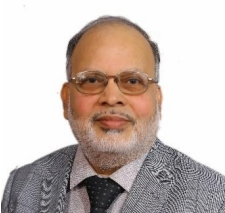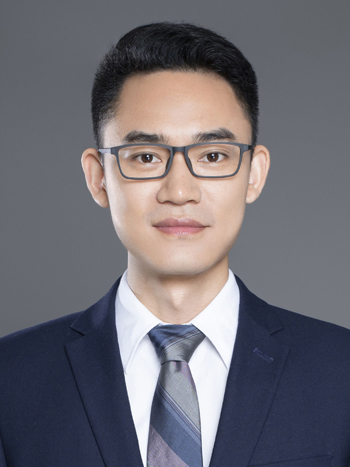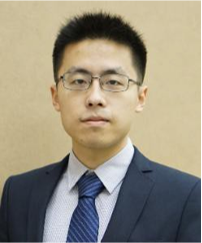

Prof. Bijnan Bandyopadhyay
Indian Institute of Technology Bombay, India
Biography:Bijnan Bandyopadhyay (Fellow of Indian Academy of Science, Fellow of National Academy of Science, Fellow of Institute of Electrical and Electronics Engineers (IEEE), Fellow of the Indian National Academy of Engineering (INAE)) received the Ph.D. degree in electrical engineering from the Indian Institute of Technology (IIT) Delhi, New Delhi, India, in 1986. In 1987, he joined the Systems and Control Engineering Group, IIT Bombay, Mumbai, India, as a Faculty Member, and is currently a Professor. In 1996, he was with the Lehrstuhl fur Eleck-trische Steuerung und Regelung, RUB, Bochum, Germany, as an Alexander von Humboldt Fellow. He has 400 publications that include monographs, book chapters, journal articles, and conference papers. He has guided 38 Ph.D. dissertations at IIT Bombay. His research interests include the areas of multirate output feedback based discrete-time sliding mode control, event-triggered sliding mode control, and nuclear reactor control.,Prof. Bandyopadhyay served as the Co-Chairman of the International Organization Committee and as the Chairman of the Local Arrangements Committee for the IEEE ICIT, Goa, India, in 2000. He also served as one of the General Chairs of the IEEE ICIT Conference, Mumbai, India, in 2006. He has served as the General Chair for the IEEE International Workshop on VSSSMC, Mumbai, India, 2012. He has also served as an Associate Editor for the IEEE Transactions on Industrial Electronics and IEEE/ASME Transactions on Mechatronics. He is currently serving as an Associate Editor for the IET Control Theory & Applications. He was awarded the IEEE Distinguished Lecturer of IEEE IE Society in 2019. He was awarded Distinguished Visiting Fellow by the Royal Academy of Engineering, London, U.K., in 2009 and 2012.

Prof. Maria Pia Fanti
Polytechnic University of Bari, Italy
Biography: Maria Pia Fanti received the Laurea degree in electronic engineering from the University of Pisa, Pisa, Italy, in 1983. She was a visiting researcher at the Rensselaer Polytechnic Institute of Troy, New York, in 1999. Since 1983, she has been with the Department of Electrical and Information Engineering of the Polytechnic of Bari, Italy, where she is currently a Full Professor of system and control engineering and Chair of the Laboratory of Automation and Control. Currently, she is IEEE Fellow and Fellow of the Asia-Pacific Artificial Intelligence Association. Her research interests include management and modeling of transportation, logistics and manufacturing systems; discrete event systems; Petri nets; consensus protocols; fault detection. Prof. Fanti has published more than 325 papers and two textbooks on her research topics. She was senior editor of the IEEE Trans. on Automation Science and Engineering and she is Associate Editor of the IEEE Trans. on Systems, Man, and Cybernetics: Systems. She was member at large of the Board of Governors of the IEEE Systems, Man, and Cybernetics Society, and currently she is member of the AdCom of the IEEE Robotics and Automaton Society, and chair of the Technical Committee on Automation in Logistics of the IEEE Robotics and Automation Society. Prof. Fanti was General Chair of the 2011 IEEE Conference on Automation Science and Engineering, the 2017 IEEE International Conference on Service Operations and logistics, and Informatics and the 2019 IEEE Systems, Man, and Cybernetics Conference.

Prof. Kun Li
Chongqing University, China
Biography: Distinguished Professor of "Hongshen Young Scholars", Ph.D. supervisor, overseas talents. Obtained Bachelor's degree from Jilin University, obtained a Philosophy degree from Tsinghua University. In February 2017, he went to the University of Texas at El Paso for postdoctoral research and served as Prof. Lawrence E. Murr (The pioneer in additive manufacturing in the US) and R.D.K. Misra's Ph.D. student co-supervisor. The scientific research achievements won the University of Texas Researcher Award 2018. In April 2019, he served as a senior researcher in the Department of Mechanical Engineering and Materials Science, University of Pittsburgh. In August 2020, he was hired as a "Hongshen Young Scholar" Distinguished professor and doctoral supervisor of Chongqing University, engaged in teaching and research work. Mainly engaged on additive manufacturing, intelligent 3D net forming, high-performance materials and phase change, and material computing. He has published more than 40 papers in famous journals and conferences such as "Additive Manufacturing", "Journal of Materials Science and Technology", "Materials Science and Engineering: A", and "Journal of Nuclear Materials". Served as the reviewer of famous journals in the fields of "Acta Materialia", "Materials Research Letters", "International Journal of Plasticity" and other fields.
Speech Title:Research progress and prospects of additive and intelligent manufacturing of high-performance metal materials
Abstract:As an important branch in the field of 3D printing, metals additive manufacturing, has demonstrated great value and broad application in strategic emerging industries such as aerospace like turbo engine and blades, transportation like bearings, new energy and medicalstructures. The research progress has been made through several decades combined with the lab research. It has changed the traditional manufacturing methods and provided new ideas for the direct manufacturing of complex metal structures and functional parts,liberating the freedom of designers and making new product forms emerge, which shows very considerable prospects in the fields of innovative product development, biomedicine and energy.

Prof. Teng Li
Shandong University, China
Biography: Teng Li, Professor of School of Control Science and Engineering at Shandong University, graduated from the University of British Columbia. He dedicates his research on robotics and intelligent unmanned systems, focusing on the theories of time series forecasting and spatial field analysis using deep learning and artificial intelligence, and further implementing on the applications of structural and environmental monitoring. He has published over 30 papers including IEEE Transactions on Systems, Man, and Cybernetics: System and other leading journals and conferences. He is the executive director of the SDU-Fengshuo Intelligent Technology Center, the Program Co-Chair of ISBIR 2022, the Publication Chair of IEEE ICCSE 2021, the Session Co-Chair of IEEE/RSJ IROS 2017, the Technical Program Committee member of HP3C 2023 and CSCWD 2022, the Local Arrangement Committee member of IEEE CASE 2019. He is also the Reviewer Committee member of Electronics and Mechatronic Systems and Control. He serves as the Committee member of the National Contest of Robotics and Artificial Intelligence (Shandong Province). He has participated in many international and national academic conferences and has been invited to give presentations at the University of Toronto, Chinese University of Hong Kong, and other research institutes.
Speech Title:Intelligent Monitoring Approaches for Autonomous Inspection of Wind Turbines
Abstract:
To address the issue of safety operation and maintenance of wind power, this talk will introduce a monitoring framework for wind turbine (WT) damages based on an intelligent unmanned system. Considering the harshness of wind farm environment and the limitation of traditional inspection methods, this research combines digital twin technology with deep learning technique to realize WT damage localization based on artificial intelligence algorithms, and further realizes autonomous inspection of damage locations using unmanned aerial vehicle (UAV). Aiming at the shortcomings of the existing intelligent monitoring methods, this research combines the damage data generated by the finite element model and the damage localization algorithm based on deep transfer learning to realize the localization and detection of WT blade damages. In addition, active sensing and identification of the critical locations are realized through UAV technology, which improves the detection efficiency and accuracy while reducing the energy consumption of operation and maintenance. To summarize, this study aims to realize rapid unmanned inspection of WTs through intelligent monitoring means, improve the effectiveness of the monitoring process, and promote the automation and intelligence of wind power operation and maintenance.

Prof. Wenchao Meng
Zhejiang University, China
Biography:Meng Wenchao, National Four Young Talents, researcher of the "Hundred Talents Program" of Zhejiang University, doctoral supervisor, senior member of IEEE. In 2015, he received his Ph.D. in Control Science and Engineering from Zhejiang University. In 2015, he went to Carleton University in Canada to carry out postdoctoral research. In November 2019, he joined the research group of "Network Sensing and Control" by Academician Sun Youxian and Professor Chen Jiming of the School of Control Science and Engineering and the Institute of Industrial Control, Zhejiang University. He has long been committed to machine learning, intelligent control and the application of intelligent energy systems, and has achieved a series of research results. He has published more than 30 academic papers, including 15 papers as the first author in major international journals in this field, such as Automatica, IEEE Transactions (TSG, TPS, TIE, TCST, TNNLS), etc. The research work has attracted the attention of a large number of researchers at home and abroad, and many papers have been selected as ESI Highly Cited Papers and ESI Hot Papers. He has been invited to edit 2 academic works, 3 academic chapters, and 4 patents. The research results have won the Outstanding Doctoral Dissertation Award of the Chinese Society of Automation, the Best Conference Paper Award of I-SPAN 2018, etc. He has been invited to serve as an editorial board member of IEEE Trans. Smart Grid, an authoritative journal in the field of smart grid, and a guest editorial board member of international journals such as Peer-to-Peer Networking and Application and Energies. He has been invited to serve as a TPC member of IEEE EPEC 2016, IEEE GLOBECOM 2017 2018, WPMC 2017, ICCEREC 2018 and other international conferences, and a session chair of IEEE EPEC 2016. He presided over major projects of scientific and technological innovation 2030, national nature, enterprise entrustment and other projects. He has maintained contact and close cooperation with well-known scholars in scientific research institutions in the United States, Canada and other countries, including Innocent Kamwa (IEEE Fellow), Chief Scientist of Hydro Québec in Canada, Professor Jennie Si (IEEE Fellow) of Arizona State University, and Professor Jagannathan Sarangapani (IEEE Fellow, Rutledge) of Missouri State University Emerson Distinguished Professors), etc.
Speech Title:Adaptive Control of High-order Nonlinear Systems
Abstract:Physical systems often exhibit nonlinear characteristics, such as robots and aircraft. This report will discuss two main issues related to nonlinear systems. First, we will introduce a system transformation-based adaptive control method that addresses high-order features of nonlinear systems and significantly reduces the complexity of controller design. Second, we will present a control strategy based on error transformation that ensures both steady-state and transient performance of the system, addressing the performance requirements of nonlinear systems. These approaches are effective in dealing with key issues related to nonlinear systems and offer promising solutions for use in fields like robotics and aerospace.